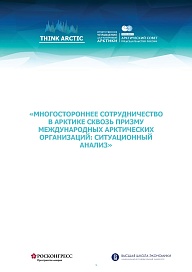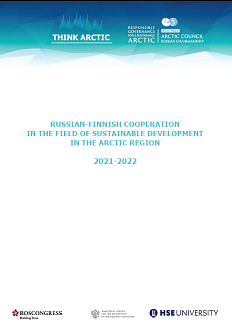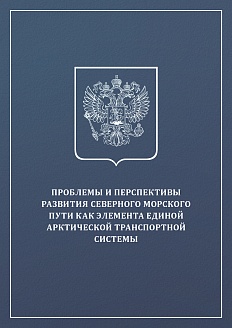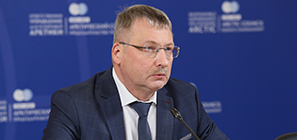The report was prepared specifically for the session ‘Multilateral Cooperation in the Arctic through the Prism of International Arctic Organizations: A Situational Analysis’ as part of the Think Arctic — Think Global analytical project discussed the current state of collaboration between Arctic states and prospects for international organizations in the region. The project is being implemented under the auspices of Russia’s chairmanship of the Arctic Council in 2021–2023. The Roscongress Foundation is managing the events of the chairmanship.
The analysis of international cooperation in the Arctic is based on a set of scenarios developed by the research group of the Department of World Economy and World Politics of the National Research University Higher School of Economics to determine the medium-term prospects for overcoming the current economic and geopolitical crises. This set of scenarios is determined by a combination of two key indicators — the rate of world economic recovery and the degree of conflict in international relations for the period up to 2030. The pace of post-crisis recovery of the world economy is a key factor that determines the financial capacity of countries to get involved into international projects in the Arctic. At the same time the degree of conflict in international relations implies not only the degree of tension in relations between Russia and the West, including the severity of anti-Russian sanctions, but also the overall level of mistrust between countries, in particular the degree of divergence between the interests of the United States and China.
Based on the two key vectors of recovery from the current crisis and the trends in the interaction of the countries in the Arctic that have emerged in recent decades, four characteristics that characterize the direction of the development of the Arctic governance system have been formulated. They include the overall functionality of Arctic cooperation institutions, the degree of involvement of non-Arctic countries in the Arctic institutions, the level of fragmentation of governance institutions and the degree of interest divergence between countries, and the priorities and sectoral focus of cooperation between countries.
Each scenario considers opportunities for building international cooperation: from continuing multilateral cooperation in existing formats to creation of new regional systems of interaction. Each scenario explores the possibilities of Russia’s integration into the new architecture of the world order, which in each scenario appear to be feasible to a different extent. It also takes into account the probability of Russia’s continued cooperation with Western countries and the development of partnerships with Asian countries in the face of sanctions.






